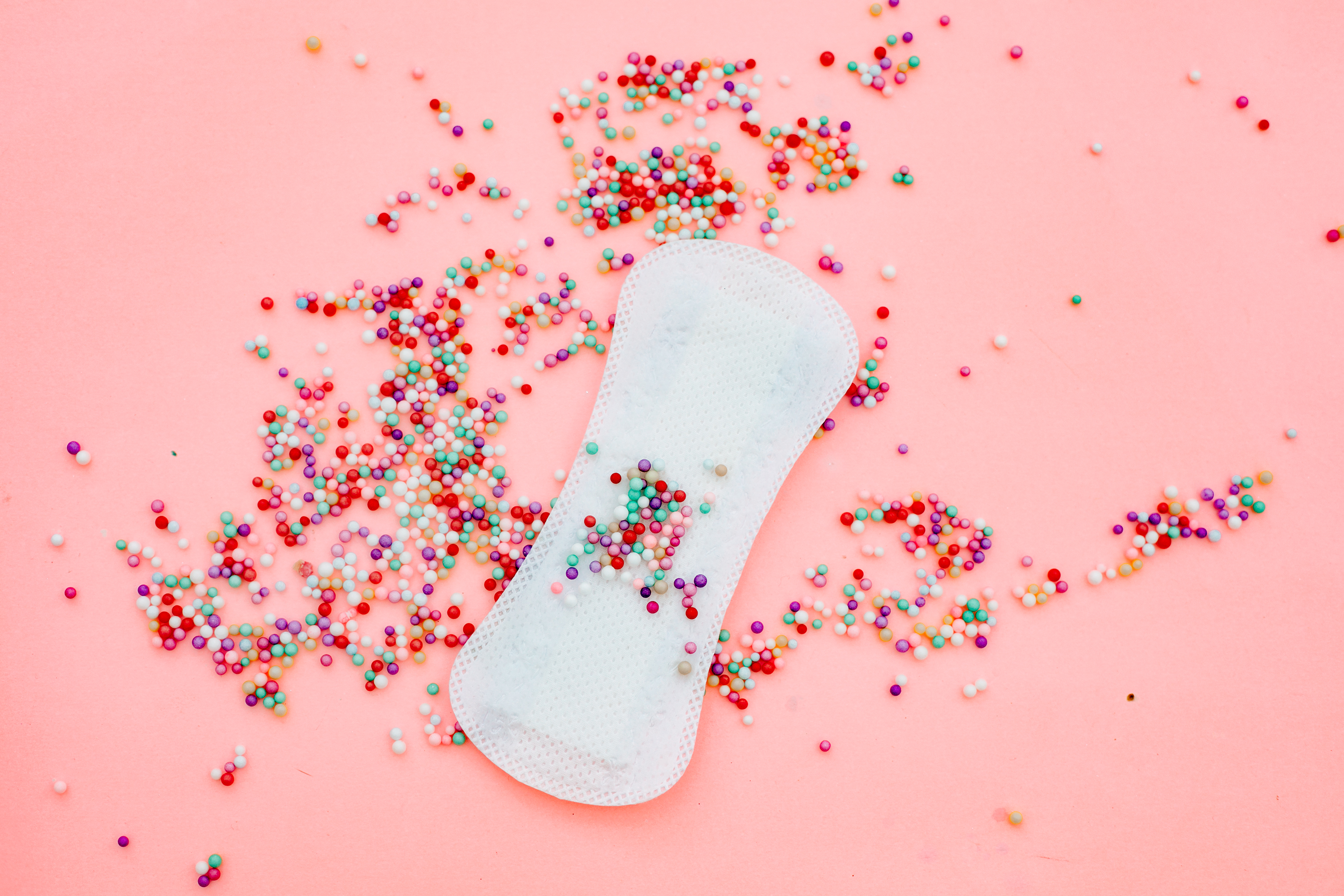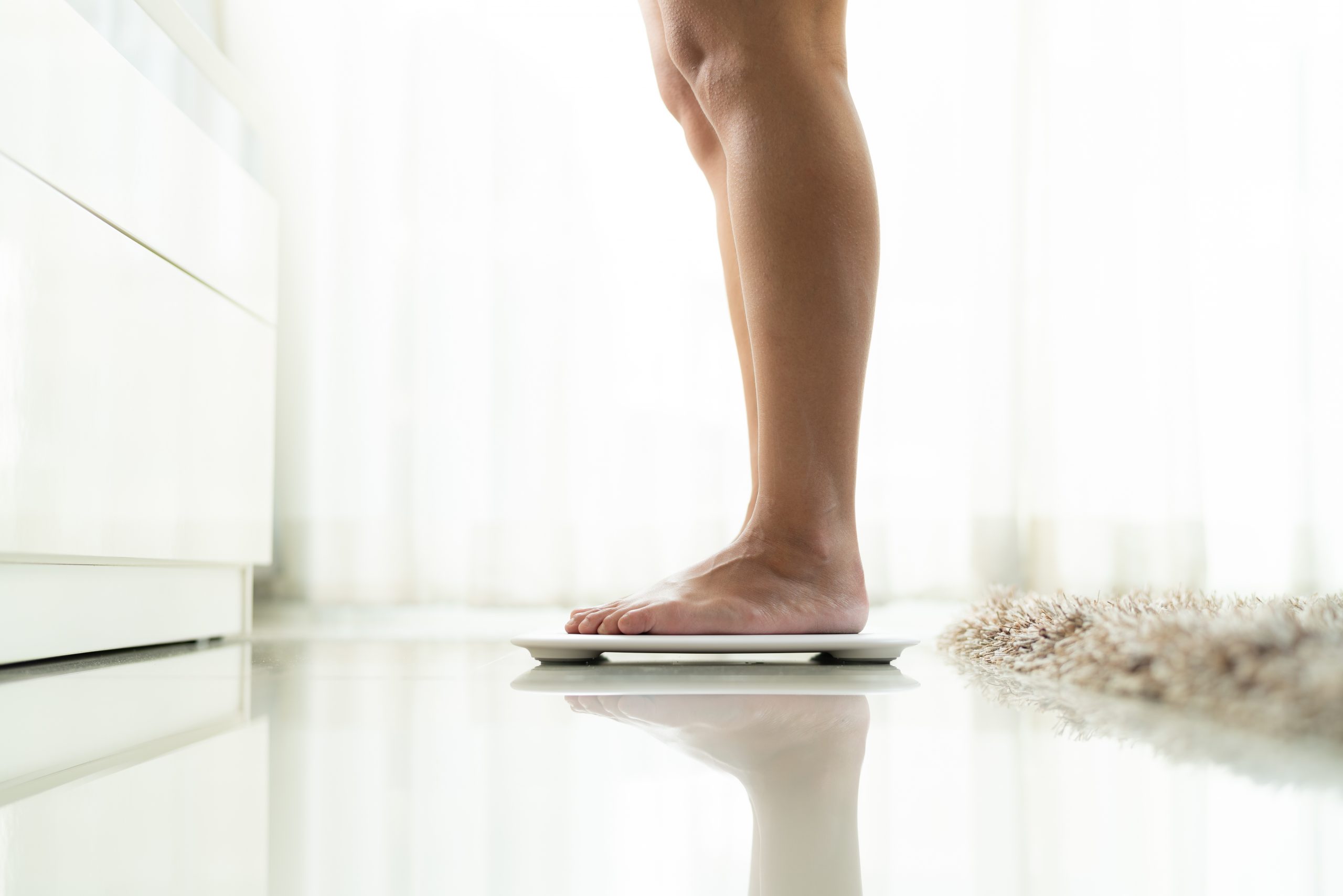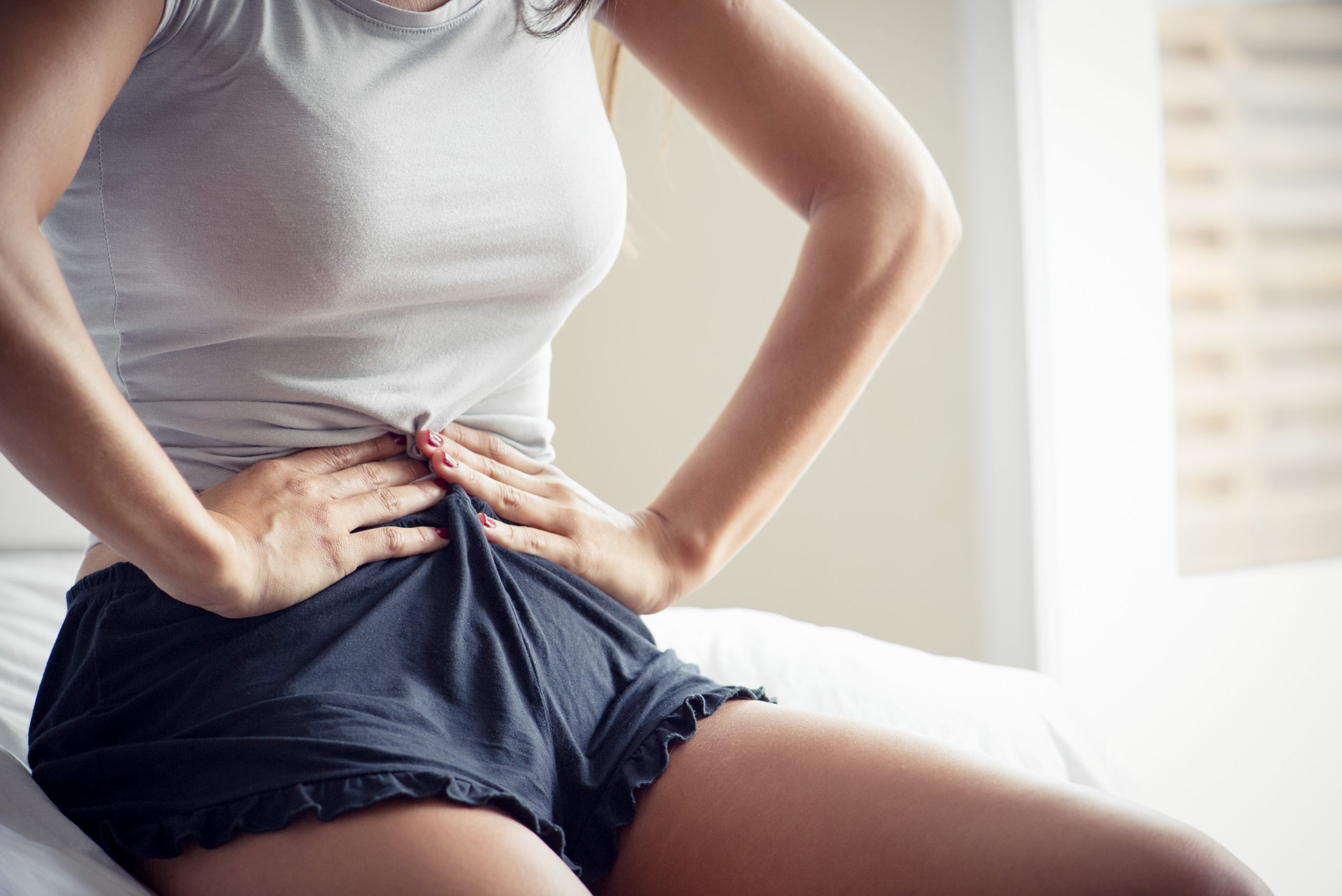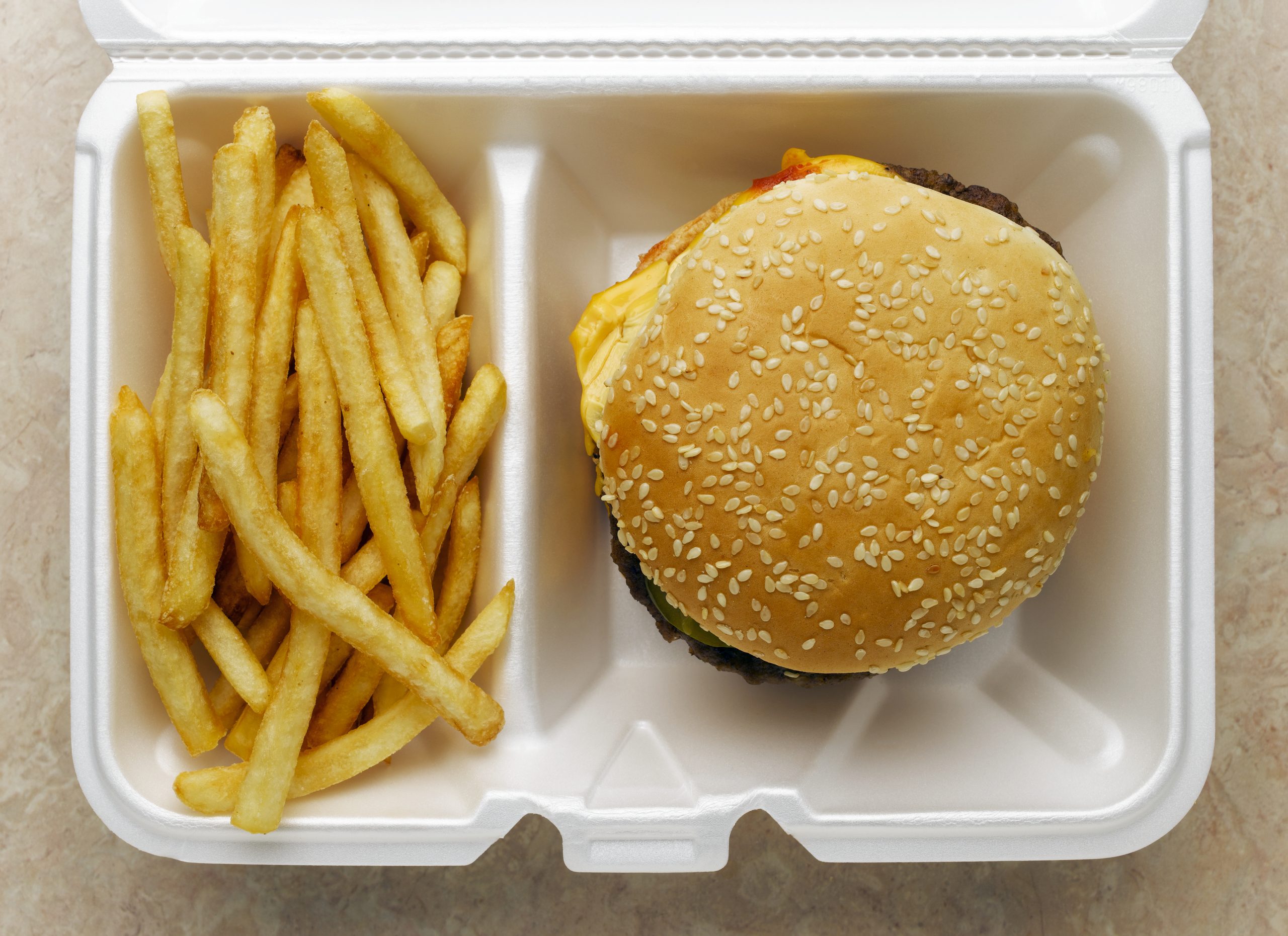Weight gain during period: Why it happens and how to prevent it
Gain weight on your period? You’re not the only one. From bloating, mood swings to annoying skin breakouts, life’s not always much fun at certain times of the month. But knowing what to expect, (when and how much) can often help.


These health experts share the truth about period weight gain and how to counteract it.
It’s totally normal for us women to feel heavier during our menstrual cycle. With one survey relaying that a whopping 70% of us females admit to feeling bloated during that time of the month.
Whilst we can make a conscious effort to eat right during our period as one of the natural PMS remedies, frustratingly period weight gain is a real thing. Though it’s essential to note that this is entirely natural and something that’s linked to how our bodies deal with the menstrual changes it’s experiencing:
“Every day our weight fluctuates a little either way so it is important never to focus too heavily on a particular number on a day to day basis,” explains Dr Ellie Rayner, a gynaecologist and founder of The Maternity Collective. “Remember that this type of weight gain is just your body's normal reaction to your changing hormones during the menstrual cycle.”
To better understand the connection between periods and weight gain, we asked two medical professionals to explain the science and share their advice and helpful tips.
How much period weight gain is normal?
Whilst every woman differs, the general consensus is that us females can gain between 1 to 2 kg of weight (or 2 to 4 pounds) during our period.
“Around the time of your period you may notice your weight gain is more than at other times during your menstrual cycle and some women can notice between 1-2kg during this time,” Dr Ellie tells us.
Parenting advice, hot topics, best buys and family finance tips delivered straight to your inbox.

Alison Cullen, a Nutrition Practitioner and Health Education Manager for A.Vogel agrees:
“Some women barely notice their period, with just a little bloating during their bleed,” she says. “Others may find their weight bobbing around by as much as 3-5lb/1-2kg.”
What causes period weight gain?
Period weight gain is most commonly linked to the hormones oestrogen and progesterone which rise and fall throughout your cycle.
“Higher levels of oestrogen (which peak before your period) can lead to you retaining more water causing you to feel slightly puffy or more bloated,” explains Dr Ellie. “Whilst changes in progesterone during your cycle can cause your gut to slow down, leading to you become constipated which can also affect your weight.”
Nutritionist Alison talks us through the different phases of our period and how weight gain can vary at differing points:
After you’ve ovulated: “Firstly, as levels of the sex hormone progesterone rise, they influence the amount of a fluid-regulating hormone called aldosterone. If your diet is quite high in salt, this can tip you over into retaining fluid. Leaving you bloated and tired.”
Last week of your cycle (before you bleed): “Next, as levels of the mineral chromium fall, you may experience food cravings for sugar or carbs. A sudden influx of refined carbs will add bloat and show up when you weigh in. You are also more likely to experience constipation. A couple of days of reduced bowel movement will have a surprising amount of effect on the scales.”

Just before your bleed: “You may feel extra-tired, as levels of the sex hormone oestrogen fall. Inspiring yourself to rush out and exercise may be tricky at this point, and less exercise may mean more poundage (especially if you are consoling yourself with a packet of comforting yet unhealthy biscuits).”
Start of your bleed: “You may feel a little more bloated or distended as your womb is now engorged with blood. This is in anticipation of the implantation of a fertilised egg, which is great if you want to get pregnant, but not if you’re working on maintaining a streamlined silhouette. The good news is, this isn’t weight gain and it isn’t permanent – things are about to shift.”
During your bleed: “You are losing iron. If you are already deficient or even borderline in this important mineral, fatigue will now claim you for its own. You’ll also feel dizzy, chilly, and light-headed. Supplementing with a natural iron tonic is very sensible if this is you.”
How to prevent period weight gain:
Some simple steps can be taken to help you feel less bloated and prevent some period weight gain:
1. Make a point to drink plenty of water: “This will ensure you don’t retain fluid. The less water you drink, the more the body thinks there’s a drought and starts hanging onto every bit of water it can. Drinking plenty will keep things moving smoothly,” says Alison.
2. Avoid salty foods: “Try not to eat too much salty food or carbohydrates,” advises Dr Ellie, as this will lead to dehydration and water retention.

3. Go easy on the coffee and booze: One study found that caffeine (an inflammatory) can make PMS symptoms like bloating worse. So limit your lattes and cut down on the cappuccinos.
4. Eat lots of fruit and vegetables: “The fibre in veg is very helpful for the gut. Try nibbling on dried fruit instead of (or at least in between) the biscuits, to provide more helpful fibre and mineral-drenched sweetness,” says Alison.
5. Stay active: “Exercise is really important throughout your cycle as it will reduce bloating, encourage your digestive system to continue to work as normal and will release endorphins - making you feel better too,” Dr Ellie tells us.
6. Consider vitamin supplements: One scientific study found that taking 250 milligrams of magnesium a day helped reduce water retention during your period. It also highlighted that a daily dose of vitamin B6 helped with bloating too.
7. Get some good shut eye: A University of Wisconsin study found that people who slept well had reduced ghrelin and increased leptin levels. These two hormones help regulate your appetite during the day, helping you not to overeat.
Is there anything I can do to avoid period weight gain altogether?
Sadly, bloating and weight gain during your period is not something that can be avoided altogether. As it is ultimately dictated by our bodies and how it deals with our hormones around that time of the month.
With that said, our tips above on eating right and practising some self care are ones that health experts actively encourage you to take. As these help promote a balanced diet and routine, which can prevent any period weight gain from becoming permanent.
Video of the Week

Faye M Smith is a Senior Health And Lifestyle writer working across Woman & Home, Feel Good You, Woman’s Own and Woman magazine. Having gained an NCTJ postgraduate diploma, Faye has worked for 15 years in journalism, covering a range of lifestyle topics for companies including the BBC, Press Association, News UK and Hachette.